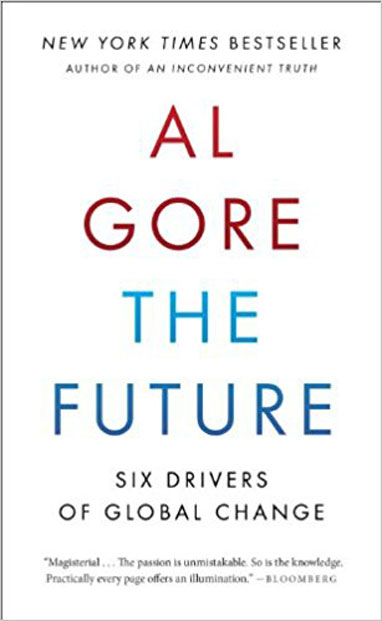Featured Book
The Future
Six Drivers of Global Change
The global economy, a global “mind” powered by the internet, a shifting global power structure, unsustainable growth, breakthroughs in life sciences and the threats to our ecological foundations are converging to present an unprecedented challenge and opportunity. Can we muster the collective confidence, commitment and wisdom to meet it?
What is our present conception of the future? How does our image of the future affect the choices we are making in the present? Do we still believe that we have the power to shape our collective future on earth and choose from among the alternative futures one that preserves our deepest values and makes life better than it is in the present? Or do we have a crisis of confidence in humanity’s future?
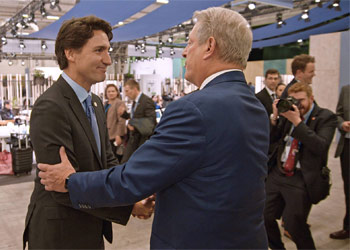
There is a clear consensus among the world’s leading experts that the future now emerging will be extremely different from anything we have ever known in the past, not a difference of degree but of kind. There is no prior period of change that resembles what humanity is about to experience. It has always been that, for every new technology that can be used for good, there is also the potential for bad through abuse, ignorance or lack of foresight. We are now at a juncture where bad consequences can be disastrous for our survival and the health of the planet.
Says Gore: “Just as naïve optimism can amount to self-deception, so too can a predisposition to pessimism blind us to bases for legitimate hope that we can find a path that leads around and through the dangers that lie ahead. Indeed, I am an optimist, although my optimism is predicated on the hope that we will find ways to see and think clearly about the obvious trends that are even now gaining momentum, that we will reason together… that we will actively choose to preserve human values and protect them… because I believe in the future.”
Six Drivers of Global Change
This book is not primarily about the climate crisis, although that figures importantly in one of the chapters. Gore discusses in depth and detail six fundamental forces shaping the changes for the earth and humanity that are now underway, and how they influence and interact with each other. Each of these forces, as an “emergent” phenomenon, is not only greater than the sum of its parts, but different from the sum of its parts in important and powerful ways.
- A global economy – Emergence of a deeply interconnected global economy, which Gore calls Earth Inc., that increasingly operates as a separate entity, with an entirely new relationship to governments, labor, capital and consumers than previous economic systems have had.
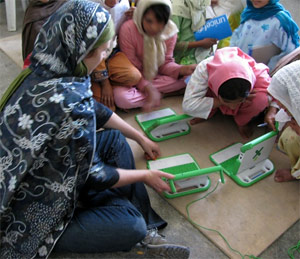
- The communication and data revolution – Emergence of a planet-wide electronic communications grid connecting the thoughts and feelings of billions of people, and linking them to rapidly expanding volumes of data. Gore calls this phenomenon the Global Mind.
- The shifting global power structure – Emergence of a completely new balance of political, economic and military power in the world, radically different from the stability and equilibrium of the second half of the twentieth century under the leadership of the United States. Individuals and splinter groups now have access to weapons, technology and military power that were formerly controlled only by nation-states. Global business, which increasingly lacks allegiance to specific governments, can now fund military and political operations to their own advantage, regardless of public good or national priorities.
- Unsustainable growth – Emergence of rapid, unsustainable growth in population, pollution, cities, and consumption of resources; depletion of vital resources such as topsoil and freshwater supplies; decrease in the number of living species; and economic activity oblivious to its true demands on present and future resources.
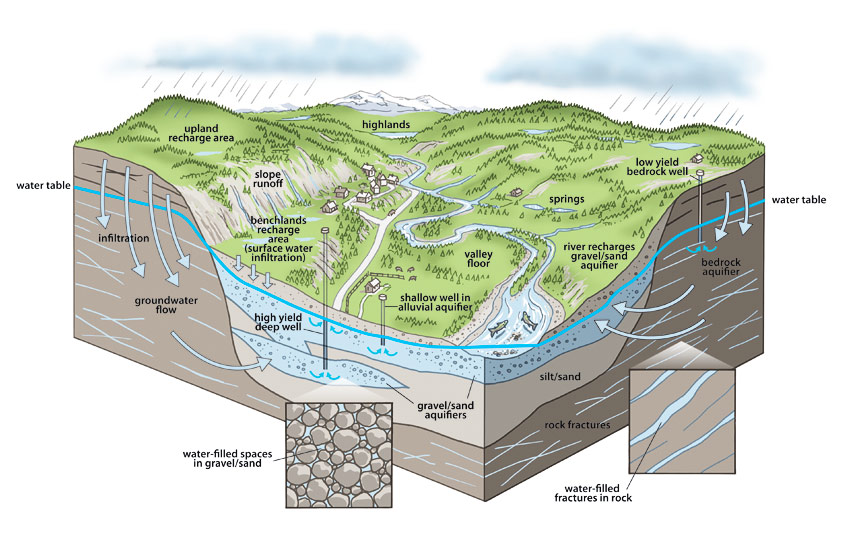
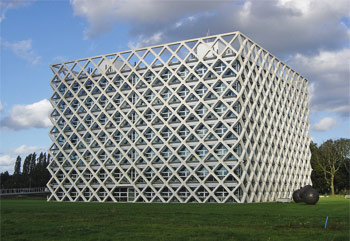
- Unprecedented developments in the life sciences – Emergence of a revolutionary new set of biological, biochemical, genetic and material technologies that are enabling us to restructure existing life forms and create new ones. While providing the opportunity to change life as we know it, these powerful developments are overwhelming our present capacity for deliberate collective decision making, and for reflection on the implications of the choices we make now for the future of the human species.
- Endangered ecological foundations – Emergence of a radically new relationship between the aggregate power of human civilization and the earth’s ecological systems, especially atmosphere and climate, upon which the continued flourishing of human life depends.
Complexity
The workings of the emerging global scheme exceed the level of complexity humans are most comfortable with. We prefer simple issues that can be resolved in a single life span or political cycle. We want certainty, we embrace theories that provide simplistic solutions. We want to believe that things just aren’t that difficult, or if they are, it’s the job of the experts to solve them. To regain control of our future, however, we need to recognize and move beyond comfortable distortions and simplistic theories.
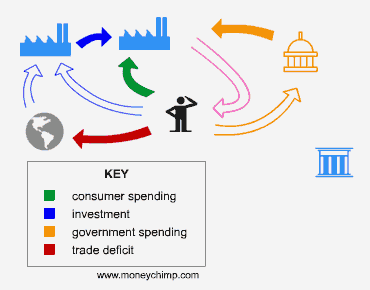
One oversimplified theory in widespread use is the economic value measurement known as the gross domestic product. By arbitrarily including certain values and excluding others, the GDP builds in enormous distortions that render it absurd for its stated purpose of assessing a country’s economic vitality. It ignores the costs of critical factors such as pollution, depletion of essential resources, distribution of income, sustainability, and atmospheric effects. Instead of taking into account the depletion of groundwater and topsoil, for example, the GDP is calculated as though those resources were unlimited, forever, and conversely assigns no positive value to public goods in education, health care and the environment. Conceived in the 1930s, the GDP celebrates ever-increasing rates of consumption by ever-faster growing populations, from a short-term simplistic viewpoint. Yet the very simplicity of this deeply flawed measurement makes it attractive as a justification for economic choices and a comforting notion for the masses.
Earth Inc. and the Global Mind: Business, Power and Mass Communication
The rise of democracy and modern market capitalism depended in part on the print revolution. For the first time, ideas that found resonance with large numbers of people could be disseminated cheaply and discussed widely. Informed populations could take on a greater role in their own governance; new economic opportunities were created; national identities were strengthened.
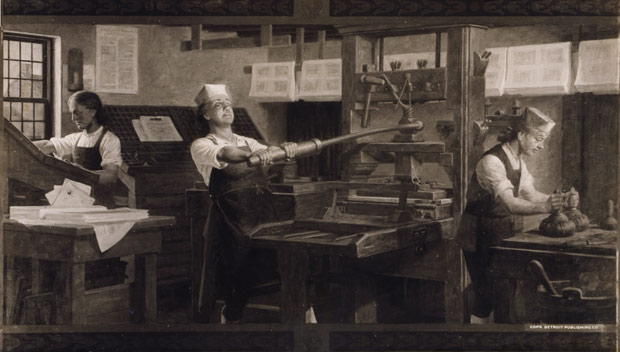
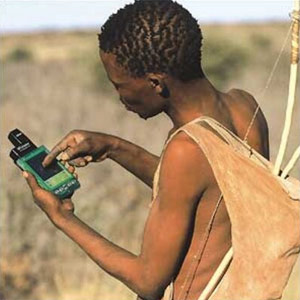
The current revolutions in economics and power are enabled and shaped by electronic media rather than print. And despite the rapid rise and expansion of the Internet, television is still far and away the dominant communication medium in the modern world. It is also the medium most responsible for blurring the lines between information and entertainment, between fact and agenda, between the right to be heard and de facto censorship. Compared to print in its day, TV time is far too expensive for any but wealthy citizens, corporations and well-funded organizations. Financial interests now dominate public discourse through television, manipulating the public’s awareness and even the vocabulary of public discussion, far beyond what was possible in the print era.
Gore convincingly documents a modern world where both capitalism and democracy have been “hacked” by special interests. Government, in a strangle-hold by corporate business, can no longer enact the regulations and incentives necessary to protect the public good. Politicians can no longer objectively represent their constituencies, and true multi-party cooperation has been replaced by partisan obstructionism. Business, no longer adequately constrained by regulations or domestic and environmental priorities, dominates the public decision process at the expense of workers, consumers and the environment.
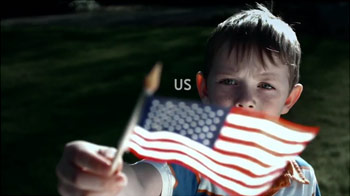
How has this come about? With vast financial resources, corporations have waged a directed campaign over half a century to elect sympathetic representatives, set agendas, push favorable policies, slant information, discredit science, and discourage participation by the public. They have deliberately manipulated our view of “Government,” which is portrayed as cynical and out of control. Any proposed regulation, tax or program unfavorable to particular interests is discredited as a denial of our rights and freedoms. We decreasingly look to government for leadership and protection, and increasingly view it as the enemy at worst, or a bumbling and ineffectual bureaucracy at best.
The emergence of the Internet as an alternative platform holds great promise for replacing print as a forum for the masses. But the pervasive influence on our thinking by special interests, through television, is an obstacle that must be recognized and overcome.
Human Values and the Life Sciences Revolution
We are now at a point in history where is it technologically possible to change the very course and nature of evolution. Already, advances in genetics, biochemistry, and the structural building blocks of life itself are leading to new forms of microbes, plants, animals and humans. We are crossing ancient boundaries that separate one species from another, humans from other animals, and the living from the man-made. It is already, or soon will be, possible to introduce human genes into other species, create hybrid creatures, grow replacement organs, imbed computer chips into the body and brain, and select various traits for our offspring.

Some of these alterations will be passed on genetically to future generations, and some of those could trigger collateral changes not yet fully understood. Our new capabilities are coming faster than we can discern their full implications, and overwhelming our capacity for deliberate collective decision making.
For every government devoted to safeguarding human values, there are others that would try to manipulate the gene pool for self-serving goals. The possible loss of diversity of species, or of traits within species, not to mention the creation of new forms, will undoubtedly have unanticipated effects over a time span we, as humans, do not well comprehend. Intuitively, we know that we desperately need more wisdom than we currently have in order to wield some of these new powers responsibly. At the same time, the atrophy of American democracy and decision making have resulted in an absence of leadership in the moral and ethical, as well as political, spheres.
The Decline of American Leadership in the World Community

Political balance in the world is undergoing massive changes on a scale not seen in the past 500 years. Many of the assumptions on which the nation-state system was based are being challenged. But because nation-states retain the exclusive power to negotiate policies and implement them globally, the only practical way to reclaim control of our destiny is to seek a global consensus within the community of nations.
The emergent revolutionary changes are threatening to overtake us at a moment in history when there is a dangerous vacuum of global leadership. If any nation is seen as pursuing goals that are in the interest of all, its political power and opportunity for leadership are greatly enhanced. By contrast, if it is seen as primarily pursuing narrower interests, its political power is diminished. Since the end of World War II, at least until recently, most of the world has looked to the United States of America for leadership when facing the need for consensus on global matters. Many fear, however, that the ability of the US to provide such leadership is declining. Not since the 1890s has US government decision making been as feeble, dysfunctional, and servile to corporate and other special interests as it is now. The subordination of reason-based analysis to the influence of wealth and power has lead to catastrophically bad choices and a weakening of US influence. This crisis in leadership has to be resolved for us to move in a positive direction.

Conclusions
Human civilization has reached a fork in the road we have long traveled. The complexity of the changes we currently face, the unprecedented speed with which they are occurring, and the fact that they are converging, have all contributed to a crisis of confidence in our ability to think clearly and make the choices that need to be made. But if we face these choices with courage, the right answers are pretty clear. They’re controversial, to be sure, and making the right choices will be hard. Yet we do have to make them; we have to decide. If we decide not to reclaim control over our destiny, the rest of our journey will be very difficult indeed.
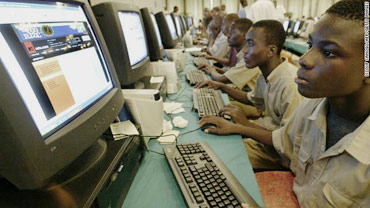
Our first priority must be to restore our ability to communicate clearly and candidly in a broadly accessible forum about those difficult choices. That means building vibrant and open “public squares” on the Internet, and protecting that forum from dominance by elites and special interests. It is especially important to accelerate the transition of democratic institutions to the Internet, and to re-establish the roles of reason and collaboration in the formation of policy. Capitalism, like democracy, must be reformed, and we must insist on full and accurate measurements of economic activity. We must use our political, economic and communication systems in the service of stabilizing growth at sustainable levels, making wise decisions in the life sciences, and protecting our ecosystem.
Gore recommends a number of specific courses of action and areas of focus. Perhaps his most urgent direction is this: In this critical time of change, the world desperately needs leadership based on the deepest human values. The United States of America, although its capacity has diminished in recent times, remains the only nation capable of providing that kind of global leadership. It is critical that we regain that capacity, in order to reclaim control of our destiny.
External Stories and Videos
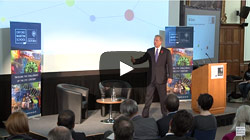
Watch: Al Gore – The future: six drivers of global change
Oxford Martin School
Al Gore surveys our planet’s beclouded horizon and offers a sober, learned, and ultimately hopeful forecast. In The Future, Gore identifies the emerging forces that are reshaping our world.

